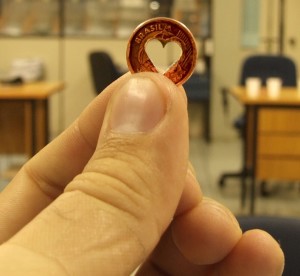Why Do We Pledge: Part IV
Recently I read a string of messages on Facebook saying that we need all of our members to give a set minimum amount or our congregations are not financially viable (pardon the paraphrase). I was sorry to read that, not the least of which because it got a response about “classism.” Although I am not sure about that label, it certain does point to furthering the divide between people based on socioeconomic factors.

Our pledging system, of funding the mission for our congregations, is wonderful because it does exactly the opposite. First of all, our services are free to all comers, regardless of their ability to pay anything. Of course there are often covenants that we use to define our welcoming, but I have never seen the ability to pay a certain amount on a covenant. Also, like the central aspects of our faith, we ask people to discern for themselves the right amount to give, in consideration of our roles at “stewards.”
Building Community
In fact, our system of pledging is inherently anti-classist because people across the full economic spectrum can join our congregations, fulfill the expectations of their membership, and have equal access and empowerment regardless of giving amount. This building a financially diverse community of beloveds is important social justice work. Where else in America can very wealthy and very financially constrained people have close relationships as part of the same community?
[Tweet “Building a financially diverse community of beloveds is important social justice work.”]
As you may have heard me say (I say it a lot), the Suggested Fair Share Contribution Guide is actually quite helpful for this purpose. It allows people to find their own place and practice their generosity on a scale with others of different financial means.
Now the point of the original Facebook statement was actually about the financial sustainability of our congregations. To me that is less an issue of persuading everyone to give at least a certain level, which isn’t a sustainable strategy. It is about the vibrancy of the congregation, the engagement of its members, and how well people are asked to contribute. I believe that if these elements are working and all of the members are giving consciously, in alignment with their financial circumstances, that the congregation will have what it needs. If not, then there is probably something out of scale in the congregation – the space may be too large or expensive for the scale of the congregation, for instance. That needs to be addressed in organizational areas outside of stewardship efforts.
That is the other way that pledging, or making financial commitments, builds community: the process is inclusive – We want to reach everyone and engage them in this campaign. What other place is available to talk about money openly – in relation to our deeper values and beliefs? For many that did not even happen in their family of origin. This also provides an opportunity to talk with each other about charitable giving generally and specifically about the role we play in our congregations.
Being part of this process, and giving in “right relationship”, increases people’s feeling of belonging. It is more than just a financial exchange or a donation to a distant nonprofit, it is a contribution to build my own community. It shifts the understanding from “I am giving” to “we are making this happen together.”
Then once the new contribution year starts, we can change our financial commitment if our circumstance alter. It is not a legal contract, so allows for the shifts people experience in their lives. This is one of the ways that we are putting people before money. Even if you alter your pledge because you made your commitment as a person with a good income and ended that year on public assistance, we still want you as one of our beloveds!
Spiritual Practice
This relates to making financial commitments (and stewardship in general) as opportunities for spiritual growth. As I said above, Unitarian Universalism calls us to discern our beliefs and values, and live according to them. Our stewardship practices align with that.
In a culture where there money is equated with power, and power is often not used for the betterment of all people, money is a sticky issue. Money, if we have enough of it, can also make us overly independent. We do not need God, a Spirit of Life, fate, or even luck because we can buy all of the things we want to make ourselves comfortable. And we do not need each other, community members, either because we can hire service providers to do those things for us (at least these are the illusions of wealth).
There is a reason that all of the major religions call people to charitable giving: it is because money can be a serious impediment to spiritual growth, if understood and used in solely self-orientated ways. It furthers our development to skillfully give money away – as this gives us purpose, increases our vulnerability (in a good way), and connects us to others. When we inspire and call people to do that, we are in service to their personal growth.
That is why the Christian theologian Henri Nouwen says,
As a form of ministry, fundraising is as spiritual as giving a sermon, entering a time of prayer, visiting the sick, or feeding the hungry.
In fact, making a commitment itself is a spiritual practice. It says, “I have faith that I will be alive next year, and will have resources, and still will care about this place and the people in it. I am willing to make a future commitment that attests to that belief.” A commitment changes the relationship from one that is more casual to one that is connected. Stewardship is a bridge to belonging.
[Tweet “Stewardship is a bridge to belonging.”]
Mark Ewert is a stewardship consultant with the Stewardship For Us team. Mark can be reached at mewert@stewardshipforus.com, via the UUA’s Congregational Stewardship Network, (http://www.uua.org/finance/fundraising/index.shtml), or through your regional staff.
This blog has a new posting no less than once a month. You may find it and more at our website, www.stewardshipforus.com. You are welcome to sign up for stewardship updates at the blog. Comments and discussion are always welcome; share your experiences with us.

Mark Ewert is a stewardship consultant, a Chartered Advisor in Philanthropy® (CAP®), and a professional leadership and philanthropy coach (PCC) certified with the International Coaching Federation.
His experience includes founding a nonprofit, working as a fundraiser, and leading a national organization. Reach Mark at Team@StewardshipForUs.com

Mark, as usual both eloquent and deeply insightful. I am in the process of writing the letter to the our congregation announcing our annual financial stewardship campaign. You have provided me some additional perspectives. Thank You!
Mark, this is a valuable reminder of how the Fair Giving Guide should be presented (it’s importance is still being debated) and why it serves to help people find their place in the overall generosity theme. I really like the phrase “Stewardship is a bridge to belonging”.